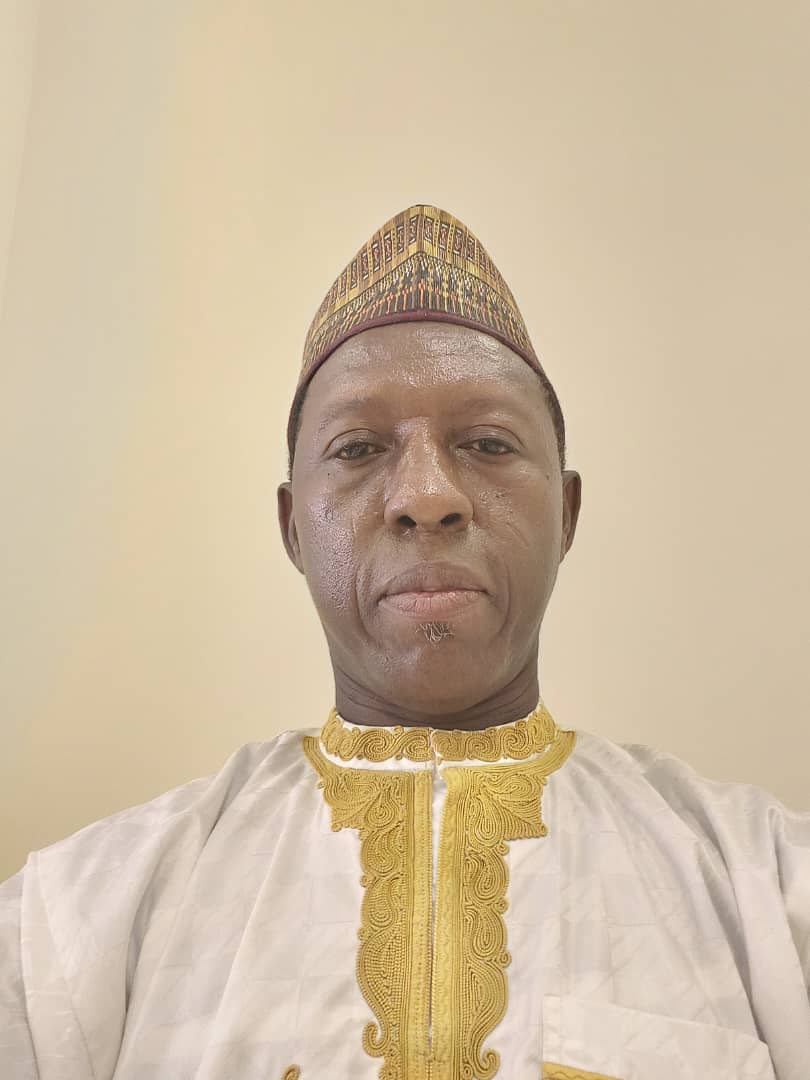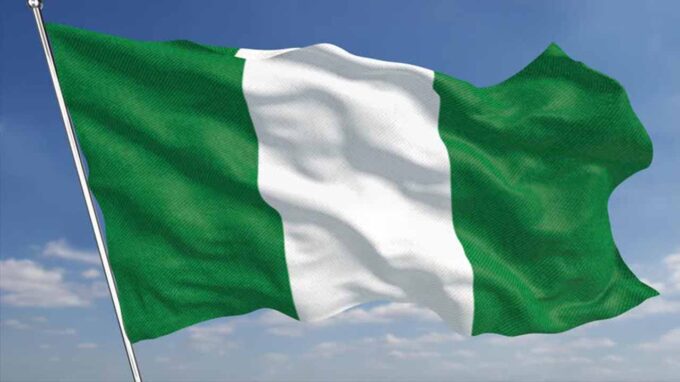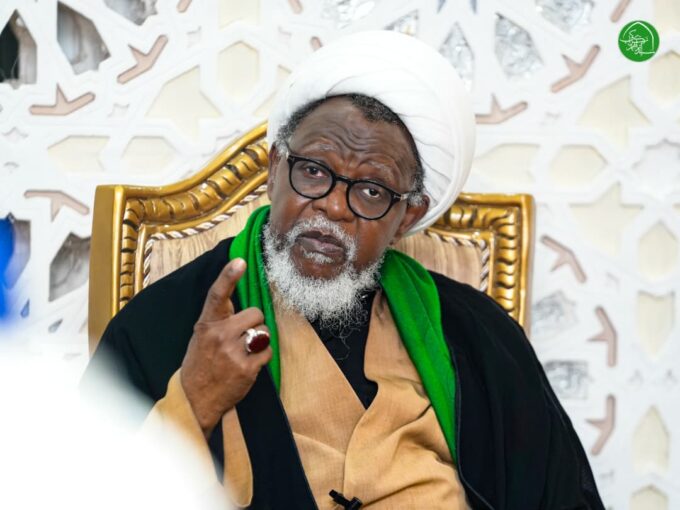By Waziri Mahdi Isa
A renowned scholar and Professor of regional economic integration law and practice in Africa, Professor Muhammad Tawfiq Ladan, has advocated for the adoption of the business model of one of the most successful businessmen in Africa, Alhaji Alhassan Dantata as a blueprint for the region’s trade and development.
Professor Ladan advocated adoption of the Dantata business model while delivering a keynote address at the book launch of the Dantata family business model and the lifetime of Alhaji Aminu Dantata at Yar’Adua Centre Abuja today.
According to Professor Ladan, the Dantata family business, built by Alhassan and expanded by his sons including late Alhaji Aminu, was profoundly transformative and sustainable over a century, evolving from a pre-colonial trading network into a modern, diversified conglomerate. Its success in Kano, across Nigeria, and in West African cross-border trade offers critical lessons for the African Continental Free Trade Area (AfCFTA) framework.
The business model of Alhassan and Aminu Dantata demonstrated exceptional transformative and sustainability over a century by adapting to colonial and post-independence economies, effectively combining trade with diversification, and building strong cross-border networks. For the AfCFTA framework, their strategies offer valuable lessons in leveraging local resources, investing in logistics, and fostering strong public-private sector relations.
Alhassan Dantata transformed a family legacy of traditional long-distance trading into a modern commercial empire by pioneering new routes and formalizing business practices. He was an early adopter of new colonial infrastructure, using coastal steamers for the kolanut trade between Lagos and Ghana and later leveraging the railway to connect Kano and Lagos.
Aminu Dantata inherited the family business after his father’s death and proved its long-term sustainability by diversifying and professionalizing the group to thrive in post-independence Nigeria. He expanded into modern sectors that aligned with Nigeria’s industrialization goals, including construction, oil and gas, banking, and manufacturing
Professor Ladan highlighted the transformative Business Model thus:
- From traditional to modern enterprise: Alhassan Dantata, initially a caravan merchant, adapted to the colonial economy by shifting to modern transport and becoming a licensed buying agent for European companies. He was a pioneer in adopting Western business methods, being the first in Kano to use a bank, depositing a vast amount of coins in 1929. This transition transformed the local trade system and integrated the Kano’s economy into global markets.
- Strategic geographic and sectoral expansion: The family’s business grew from Kano-centric trade in kola nuts and groundnuts to a wide-reaching network across Nigeria and West Africa. Under Aminu Dantata, the enterprise diversified into critical sectors like construction, oil and gas, real estate, and banking, moving beyond commodity trading to become a multi-sector powerhouse. This expansion helped modernize the Nigerian economy and built immense inter-generational wealth.
- Vertical integration: Both Alhassan and Aminu employed vertical integration to control their supply chains. This involved managing everything from raw material acquisition to logistics, which improved efficiency and cut costs. By controlling the entire process, they could dominate their market, especially in the groundnut trade where Alhassan famously amassed huge pyramids in Kano.
- Network-based trust: The business model relied heavily on an extensive network of credit and kinship, rather than just formal contracts. This patrimonial system was built on mutual trust and personal relationships, enabling trade to flourish even in regions with underdeveloped formal institutions. This network was essential for scaling their cross-border operations across West Africa.
Factors Contributing to Sustainability
- Strategic diversification: The long-term survival of the business was secured by diversifying away from its original dependence on commodities like groundnuts. This proved crucial when the groundnut trade declined in the 1960s. By branching into construction, manufacturing, and petroleum, the Dantatas ensured the business could withstand market fluctuations and political changes.
- Adherence to strong values: The Dantata enterprise maintained its foundation on strong principles of integrity, trust, and religious ethics. This not only built a reputable brand but also ensured loyalty from employees and business partners, contributing to its stability and longevity.
- Social investment and community engagement: The family, particularly Aminu Dantata, invested heavily in philanthropy, supporting education, healthcare, and religious institutions. This fostered immense goodwill, enhanced their legitimacy in the eyes of the public, and cemented their legacy as benefactors, ensuring their social license to operate.
- Generational succession planning: From Alhassan’s guidance to his sons to Aminu’s eventual leadership, the family prioritized succession. This was reinforced by a business practice where younger generations gained external experience before joining the family enterprise, ensuring that new leadership was both well-trained and respected.
Lessons for the AfCFTA Framework
The Dantata model offers crucial insights for the AfCFTA, especially for fostering sustainable, cross-border African trade.
Foster resilient local networks: The Dantata’s reliance on kinship and trust
The business model of Alhassan and Aminu Dantata demonstrated exceptional transformative and sustainability over a century by adapting to colonial and post-independence economies, effectively combining trade with diversification, and building strong cross-border networks. For the African Continental Free Trade Area (AfCFTA) framework, their strategies offer valuable lessons in leveraging local resources, investing in logistics, and fostering strong public-private sector relations.
The Dantatas’ transformative and sustainable business model
Alhassan Dantata (circa 1877–1955)
Alhassan transformed a family legacy of traditional long-distance trading into a modern commercial empire by pioneering new routes and formalizing business practices.
Adaptation and innovation: He was an early adopter of new colonial infrastructure, using coastal steamers for the kolanut trade between Lagos and Ghana and later leveraging the railway to connect Kano and Lagos.
Scale and market dominance: By becoming a major buyer for large British companies like UAC, he scaled his business to handle massive volumes of commodities like groundnuts, symbolized by the iconic pyramids in Kano.
Integration with the formal economy: In 1929, he became the first Kano businessman to use a bank, famously depositing 20 camel-loads of silver coins with the British Bank of West Africa (now First Bank of Nigeria).
Diversification: Before his death, he had expanded from kolanuts and groundnuts into foreign exchange, travel, transport, and real estate, creating a foundational business dynasty.
Aminu Dantata (1931–2025)
Aminu inherited the family business after his father’s death and proved its long-term sustainability by diversifying and professionalizing the group to thrive in post-independence Nigeria.
Strategic diversification: He expanded into modern sectors that aligned with Nigeria’s industrialization goals, including construction, oil and gas, banking, and manufacturing.
Political engagement: Aminu leveraged political influence, serving as a state commissioner and participating in Nigeria’s first global economic mission. This allowed the Dantata business to secure government contracts and navigate changing economic policies.
Investment in human capital: He fostered the next generation of business leaders, including his relative Aliko Dangote, by providing capital and mentorship.
Philanthropy: A key component of the family’s legacy and sustainability is its commitment to philanthropy, which builds social capital and community trust.
Lessons for the AfCFTA Framework
The Dantatas’ century-long success offers key takeaways for the African Continental Free Trade Area (AfCFTA).
Embrace innovation in logistics: Alhassan’s strategic use of new transport routes demonstrates the power of investing in and utilizing cross-border infrastructure. For the AfCFTA, this means that investing in and streamlining transport, whether rail, road, or digital, is critical for unlocking continental trade.
Encourage local production and vertical
The Dantata family business model, driven primarily by Alhassan Dantata and expanded by his son Aminu Dantata, proved exceptionally transformative and sustainable over a century by transitioning from colonial-era commodity trading to a modern, diversified industrial conglomerate. Key to its success were innovation, vertical integration, strategic partnerships, financial astuteness, and inter-generational succession.
Transformative and Sustainable Aspects
- Mastery of evolving trade networks
Adaptation to colonial infrastructure: Alhassan Dantata successfully leveraged colonial infrastructure, using newly established railways and steamships to dominate the trade in cash crops like groundnuts and kolanuts. This allowed him to become the wealthiest person in British West Africa by the 1940s.
Integration with modern finance: Alhassan Dantata was among the first in Kano to engage with modern financial systems, notably depositing 20 camel-loads of silver coins into the Bank of British West Africa (now First Bank) in 1929. This access to credit and banking was vital for large-scale commerce. - Strategic diversification and expansion
Beyond commodities: The business evolved from a focus on agricultural produce under Alhassan Dantata to a highly diversified conglomerate under Aminu Dantata.
Diverse portfolio: The Dantata Organization expanded into construction, real estate, transportation, manufacturing (e.g., textiles, bicycles), and eventually oil and gas (Express Petroleum) and banking (Jaiz Bank). This protected the business from over-reliance on a single sector and positioned it for growth in a changing economy. - Vertical and horizontal integration
Supply chain control: The Dantatas implemented a strategy of vertical integration, controlling aspects of their supply chain and logistics to cut costs. For example, they served as licensed buying agents for agricultural produce, cutting out intermediaries and connecting directly with state marketing boards.
Strategic partnerships: Under both Alhassan and Aminu Dantata, the family built key relationships. Alhassan partnered with British firms like the United Africa Company (UAC), while Aminu aligned with global brands like Mercedes-Benz for auto dealerships. - Inter-generational succession
Successful handover: Following Alhassan’s death in 1955, his sons, notably Aminu Dantata, were entrusted with continuing the business. Aminu successfully expanded and modernized the empire, ensuring its long-term viability.
Legacy continues: The Dantata lineage continues to produce business leaders, including Aliko Dangote, demonstrating the enduring nature of the family’s entrepreneurial spirit. - Community relevance and philanthropy
Social investment: The family, particularly Aminu Dantata, was known for significant philanthropic activities in Northern Nigeria, including investments in education, healthcare, and infrastructure. This earned them immense community goodwill and reinforced their social license to operate.
Ethical considerations: The Dantatas built their reputation on a strong foundation of trust and integrity, which was vital in sustaining business relationships over decades.
Lessons for the AfCFTA Framework
The Dantata business model offers several critical lessons for fostering the African Continental Free Trade Area (AfCFTA):
- Promote intra-African trade and cross-border innovation
Regional supply chains: Alhassan Dantata’s early use of coastal shipping routes for commodities between the Gold Coast (Ghana) and Nigeria shows the immense potential of modernizing and leveraging cross-border transport and logistics. The AfCFTA must focus on developing and harmonizing regional logistics networks.
Invest in trade infrastructure: Dantata’s success relied on utilizing emerging colonial infrastructure like railways. The AfCFTA framework must prioritize developing modern cross-border infrastructure, including roads, rails, and digital networks, to unlock new trade opportunities. - Encourage diversification beyond raw materials
Lessons for the AfCFTA Framework
The Dantata business model offers five key lessons for the success of the African Continental Free Trade Area (AfCFTA).
Prioritize intra-African trade and logistics: The AfCFTA can learn from Alhassan Dantata’s pioneering use of cross-border trade routes and various transport modes. For the AfCFTA to succeed, member states must invest in and optimize integrated logistics networks, including road, rail, and maritime links, to facilitate seamless movement of goods across the continent.
Encourage diversification and vertical integration: The longevity of the Dantata empire rested on its ability to diversify and control multiple stages of its value chains. The AfCFTA should promote policies that encourage businesses to move beyond commodity exports and invest in local processing and manufacturing. This reduces dependency on volatile commodity prices and strengthens regional supply chains.
Promote public-private sector partnerships: The Dantatas’ successful engagement with both colonial and independent Nigerian governments highlights the importance of collaboration between the public and private sectors. The AfCFTA should foster similar partnerships to align national development policies with business strategy, particularly in areas like infrastructure and market development.
Embrace regional financial and trade innovation: Aminu Dantata’s support for non-interest banking and other financial innovations demonstrates how regional financial products can drive economic development. The AfCFTA framework must encourage financial innovations and harmonize intellectual property (IP) laws to stimulate research, development, and investment across the continent.
Embed social capital and community development: The Dantata family’s commitment to philanthropy is a powerful reminder that business success is intertwined with community well-being. The AfCFTA should promote corporate social responsibility and inclusive business models that empower local communities and create broad-based economic opportunities. This can increase public support for regional trade and ensure that its benefits are widely shared.
Cross-border Trade and Regional Mastery
From the beginning, Alhassan Dantata was a master of West African trade, traveling as far as Accra (Ghana) in the early 1900s. This regional expertise provided the foundation for a business that intuitively understood and navigated cross-border commerce long before formal frameworks like ECOWAS existed.
Social capital and philanthropy
The Dantatas built immense social and community goodwill, which cemented their influence and ensured their businesses were socially sustainable.
Social responsibility: Alhassan Dantata ensured fair wages for his employees and funded the pilgrimages of other Muslims to Mecca.
Philanthropic legacy: Aminu Dantata continued this tradition, funding schools, hospitals, and mosques, and earning respect as a benefactor.
Intergenerational continuity: The family legacy and values of hard work and service have been passed down, shaping future generations, including Aliko Dangote.
Lessons for the ECOWAS framework
- Prioritize practical infrastructure over paper protocols
ECOWAS’s Trade Liberalization Scheme (ETLS) faces significant challenges from informal barriers, roadblocks, and harassment. The Dantata experience shows that investments in hard infrastructure—like transport and finance—are more effective for facilitating trade than policy harmonization alone.
Lesson: ECOWAS must invest more directly in regional transport and logistics networks, mimicking how Dantata leveraged the railway, to ensure seamless movement of goods. - Address challenges faced by small and medium-sized traders
The Dantatas’ rise was founded on extensive networks of smaller traders and agents. In contrast, a 2022 analysis notes that ECOWAS needs to provide easier and more supportive conditions for small and medium-sized enterprises (SMEs) to truly integrate the regional market.
Lesson: The ECOWAS framework should explicitly address the informal sector and small traders, who currently face more obstacles than large corporations operating under the ETLS. - Foster diversification and local production
While ECOWAS seeks to promote intra-regional trade, countries like Nigeria still focus heavily on linkages outside the region. The Dantata model demonstrates how to move from basic trading to vertical integration and local industrial production.
Lesson: ECOWAS needs robust policies that encourage member states to produce goods locally and integrate their value chains, rather than simply acting as conduits for external trade. - Promote resilience through strong, diversified local economies
The Dantata businesses survived multiple economic crises, including currency fluctuations and regulatory hurdles, by building a resilient and diversified portfolio. This contrasts with the vulnerability of many West African economies to external shocks.
Lesson: The ECOWAS framework should promote diversified economic models across the region to build collective resilience and reduce dependence on a few commodity exports. - Leverage social capital and community development
The Dantata family earned widespread respect by reinvesting wealth into their communities through schools, healthcare, and social welfare. This contrasts with a common perception of economic blocs focused solely on GDP growth.
Lesson: For the ECOWAS framework to begain deep popular legitimacy, it must be seen as contributing directly to human development and social welfare, not just corporate profits.
In summary, the Dantata business model was transformative because it was adaptive, integrated, and forward-looking. Its enduring sustainability came from diversification, community investment, and strong intergenerational governance. For ECOWAS, the key takeaway is that genuine regional integration requires more than just trade liberalization; it demands strategic investment in infrastructure, support for small enterprises, and a socially conscious approach to economic development.















Leave a comment